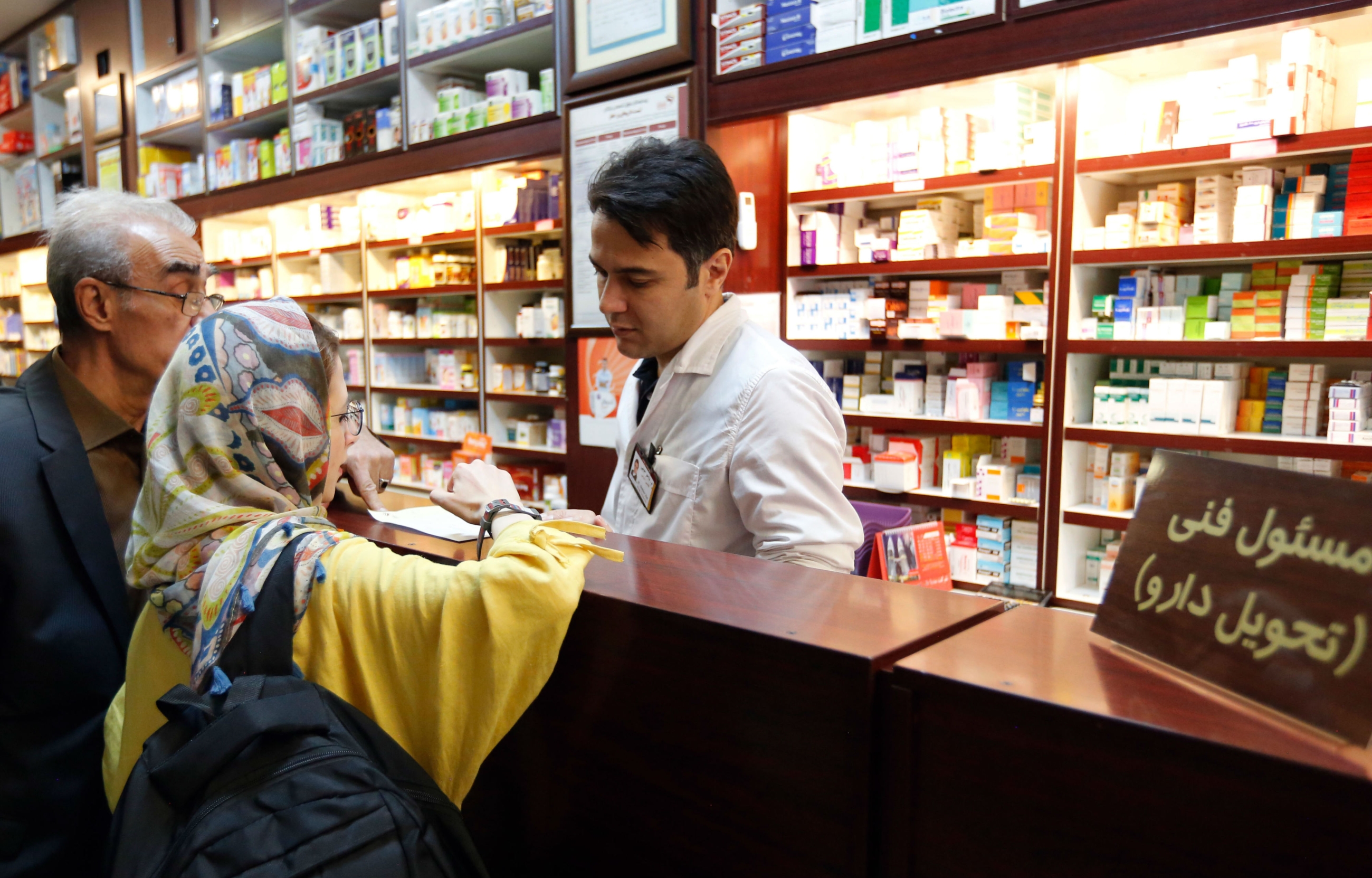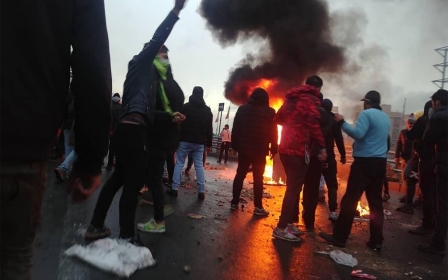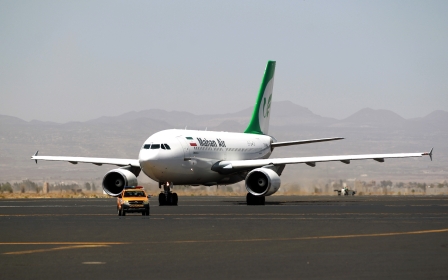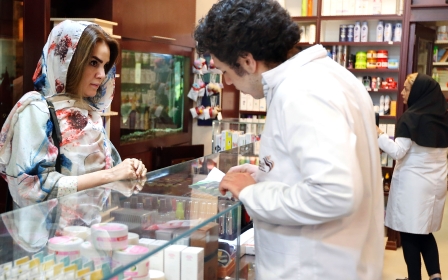Iranian press review: Fatal flu kills 81 as sanctions make vaccines scarce

Shortage of vaccines leaves dozens dead
A fatal flu has claimed the lives of at least 81 people in Iran this year, made worse due to a shortage of the imported influenza vaccine, a direct consequence of US sanctions on the country.
Earlier this month, 25 people died and a further 273 people were hospitalised due to a rare nationwide epidemic, IRNA news agency reported.
Deputy Health Minister Alireza Raeisis said those that died were elderly or patients whose immune systems had already deteriorated by other illnesses.
The Shahrvand daily reported that pharmacies in the country have run out of influenza vaccines due to a restriction on imports under US sanctions.
This year, only 1.7 million vaccines were imported to the country of 83 million people.
The daily newspaper also reported that influenza shots have been in high demand in the black market, where the vaccines are sold at three times the price.
Pharmacists told Sharvand that authorities in Iran have meddled with the vaccine distribution process and have imposed rations on their pharmacies, which has also led to the shortage of medicines.
Conservatives confident of elections victory
Nearly 14,000 candidates have registered to run for office in February’s parliamentary elections, an increase of 12.7 percent from previous elections, the Hamshahri daily reported.
Conservatives have entered the race with four different political factions, according to the daily.
The conservatives are confident of winning a majority in the next parliament despite the divisions because of the belief that the public is disappointed with President Hassan Rouhani’s inability to tackle the devastating impact of US sanctions on Iran’s economy.
Former President Mahmoud Ahmadinejad’ supporters have also formed a strong conservative front, seeking a return to the official scene of Iranian politics.
Ten ministers from Ahmadinejad’s former cabinet and one of his deputies have registered for the parliamentary elections, the daily reported.
The latest unrest across the country, coupled with the international deadlock to save the 2015 nuclear deal, have been the main reasons the reformists have been unwilling to enter the next election race.
“The story of the reformists, however, has been the story of a rival who had lost even before the race starts,” the daily wrote. “They are confused, and have no plans.”
Meanwhile, some influential lawmakers who have supported Rouhani during the past four years have withdrawn from the race.
Moderate parliament speaker Ali Larijani is the most prominent figure who has not registered to participate in the elections. Some analysts believe that he is planning to enter the 2021 presidential elections.
Outspoken legislator Parvaneh Salahshouri is another MP who is not running.
In a short statement, she explained that her decision was made in protest against the mechanisms that have limited parliament’s power and the manner in which recent demonstrations were dealt with.
Illegal villages threatening green spaces
During the last decade, clearing forests and building summer houses in pastures and agricultural lands have been a lucrative business despite it being illegal to build in these areas, the Shahrvand daily reported.
Those who are well-connected enough manage to get permission for real estate projects in the country’s northern green belt, located in the middle of the Caspian Hyrcanian forests and at the height of the Alborz mountain range, the daily said.
After a few houses are built in Iran’s picturesque areas and with the influence of provincial authorities, the area is designated an official village.
The government is then obliged to provide drinking water, electricity and gas for those houses, according to the daily.
Conservationists have warned that due to the current rate of "village-crafting", as it's locally known, northern Iran’s agriculture and farming industries will soon die out.
Recently, this phenomenon has also spread to the dry central parts of the country. Since 2015, giant farms near the desert city of Kerman have been turned into villages, the Sharhvand reported.
Afghans risk their lives to flee war
There has been a rise in deaths amongst Afghan refugees in Iran that are trying to cross the country to reach Europe in recent months, ISNA news agency reported.
Iranian authorities have not published any official numbers of the deaths of these undocumented Afghan refugees.
After the devaluation of the Iranian rial in 2018, undocumented Afghan refugees who previously worked in Iran as labourers, have travelled through the Iranian corridor leading to Turkey and Europe.
Pickup trucks smuggle petrol from Iran into Afghanistan and on the way back “the pickups are packed by layers upon layers of Afghan refugees” fleeing the 18-year American War on Terror, ISNA reported.
“On the occasions when the smugglers don’t have a truck, the Afghans are laid upon one another in the trunk of sedans,” ISNA wrote.
According to the report, Afghans pay about $40 to get a ride to the city of Zahedan, the capital of Iran’s Sistan and Baluchestan province.
However, none of the Afghans stay in Zahedan due to widespread poverty in the city.
* Iranian press review is a digest of reports that are not independently verified as accurate by Middle East Eye.
Middle East Eye propose une couverture et une analyse indépendantes et incomparables du Moyen-Orient, de l’Afrique du Nord et d’autres régions du monde. Pour en savoir plus sur la reprise de ce contenu et les frais qui s’appliquent, veuillez remplir ce formulaire [en anglais]. Pour en savoir plus sur MEE, cliquez ici [en anglais].




